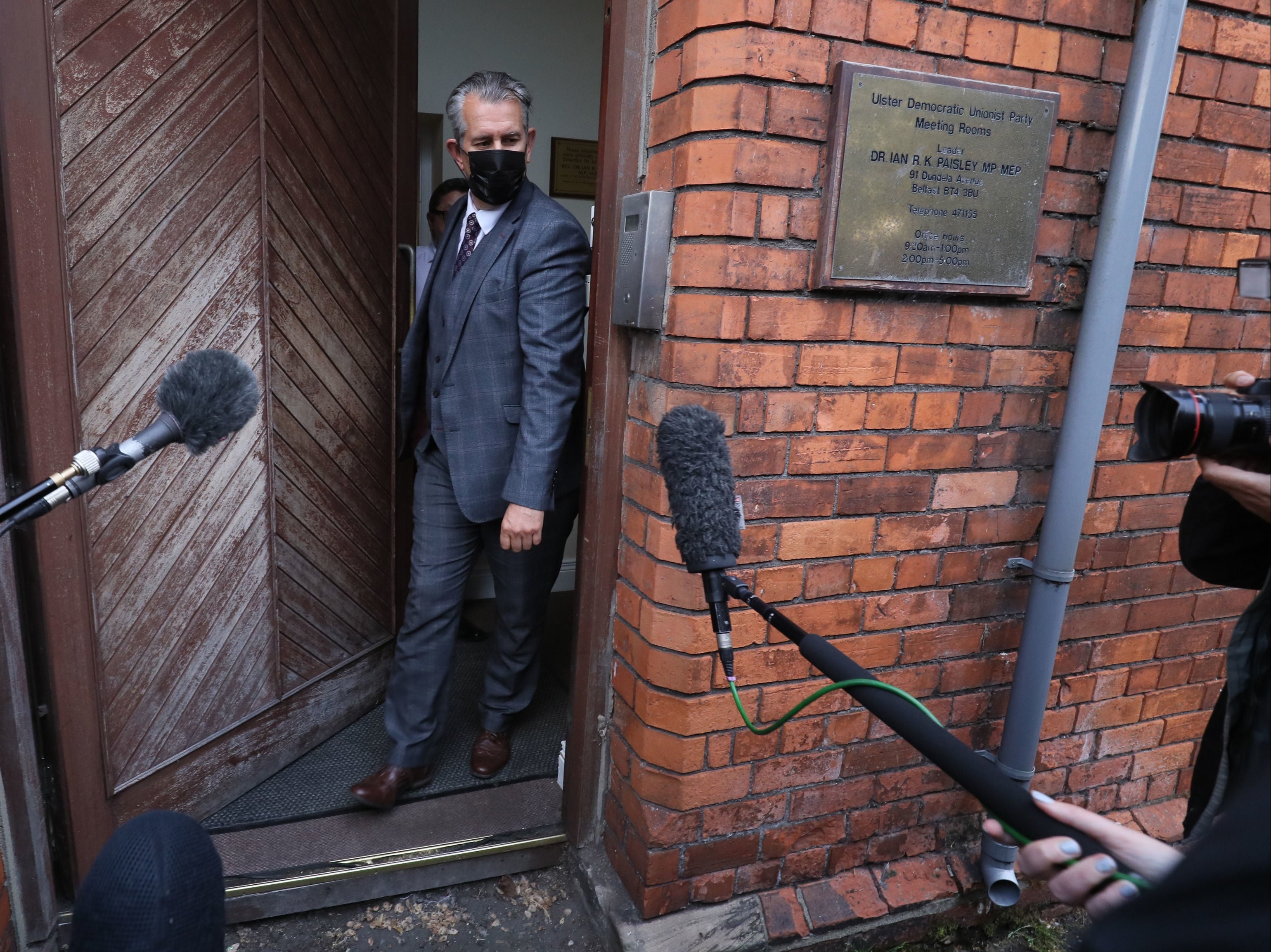Edwin Poots’s brief leadership is a sign of deeper problems for the DUP
The party plainly does not know which way to turn, writes John Rentoul


I once compiled a Top 10 shortest terms in office that ranged from Louis XIX, who was King of France for less than 20 minutes (abdicated) to Lady Jane Grey, disputed Queen of England for nine days. Edwin Poots outlasted them all as leader of the Democratic Unionist Party for 20 days before he was ejected by a convulsion even more abrupt than the one that brought him to office.
Poots will continue as leader for a few more days, while arrangements are made to choose his successor, but his tenure will be one of the shortest as leader of a party that has MPs in parliament. Only Ukip has had a shorter-serving leader – Diane James lasted 18 days in 2016, when the party had one MP, Douglas Carswell.
Interesting as Poots’s career is for collectors of political trivia, its brevity is more significant as an indicator of the kind of trouble the DUP is in – and not just the DUP but Northern Irish unionism in general.
There is much about Northern Irish politics that is hidden, and the internal workings of the two parties that lead the devolved administration, the DUP and Sinn Fein, are particularly resistant to scrutiny by outsiders. But anyone who wants to understand what is happening should start with an opinion poll carried out by Lucid Talk for the Belfast Telegraph last month.
This showed the fracturing of the unionist vote since the last Assembly election in 2017, when the DUP and Sinn Fein topped the poll on 28 per cent of the vote each. The Sinn Fein vote has held up at 25 per cent, but the DUP had dropped to 16 per cent. The DUP is now level with the cross-community Alliance Party, which has gained ground, while the unionist vote is split three ways between the DUP, the Ulster Unionist Party (UUP) and the Traditional Unionist Voice (TUV), which split from the DUP in 2007.
Since that poll, the UUP has elected a new leader, Doug Beattie, to generally favourable reviews, while the DUP leadership crisis has intensified. Meanwhile the strand of unionism that says “No” to everything is gaining from the growing opposition to the Ireland protocol of the Brexit treaty. The DUP is opposed to the protocol, the cause of the sausage war being fought by Boris Johnson against the EU, but is finding itself outflanked by the more emphatic nay-sayers of the TUV, who broke with the DUP when Ian Paisley went into government with Sinn Fein.
The DUP as a body plainly does not know which way to turn. It reacted badly to its leader Arlene Foster when she tried to lead it towards a more broad-based appeal to the sort of voters turning their back on the sectarian politics of the past – the voters responsible for the Alliance Party’s recent success. But now Beattie and the UUP are moving into that territory, while the Poots reversion to traditional unionism has worked out badly.
Plainly, Poots mishandled the nomination of his favoured candidate, Paul Givan, as first minister. But that was only the result of the deeper problems. Poots had won the DUP leadership – from Jeffrey Donaldson, now the favourite to succeed him – by saying he wouldn’t be first minister himself, which only postponed the difficult question of who would be.
So now it may be Donaldson’s turn to try to solve the deeper problems of his party and the cause of keeping Northern Ireland in the UK. He is best remembered for leading the opposition to the Good Friday/Belfast agreement in 1998, although he didn’t defect from the UUP to the DUP until 2004.
Who knows if he can keep the DUP and unionism together. It would require exceptional leadership. But it should not be impossible. As ever, I return to the state of public opinion. The hidden message of that Lucid Talk poll is that the unionist parties together have more support (41 per cent) than the nationalist parties (37 per cent).
And the not-so-hidden message of another poll, by Northern Ireland Life and Times, is that 53 per cent of people in Northern Ireland want to stay in the UK as opposed to 30 per cent who want to join a united Ireland. The key there is Roman Catholics and non-aligned voters who support the union, which suggests to me that Foster’s broad-based approach is the only way forward for unionism. But who will lead it?



Join our commenting forum
Join thought-provoking conversations, follow other Independent readers and see their replies
Comments